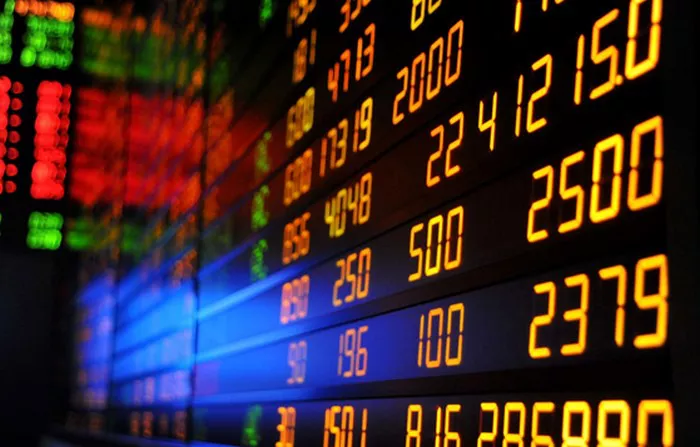Coffee is one of the world’s most consumed beverages, with a complex global market that involves various factors influencing its pricing. Among the mechanisms through which coffee prices are determined, futures markets play a crucial role. Understanding the dynamics behind coffee futures prices is essential for stakeholders across the coffee supply chain, from producers to consumers and investors. In this article, we delve into the multifaceted factors that impact coffee futures prices, exploring both fundamental and speculative elements shaping this volatile market.
Introduction to Coffee Futures Market
Futures markets provide a platform for participants to hedge against price volatility or speculate on future price movements. Coffee futures are standardized contracts traded on exchanges like the Intercontinental Exchange (ICE) and the New York Mercantile Exchange (NYMEX). These contracts represent an agreement to buy or sell a specified quantity of coffee at a predetermined price on a future date.
Supply and Demand Dynamics
At its core, the price of coffee futures is driven by the fundamental forces of supply and demand. Coffee production is influenced by various factors, including weather conditions, pest infestations, and agricultural practices. Any disruptions in coffee-growing regions, such as adverse weather events or crop diseases, can significantly impact supply levels and, consequently, prices.
On the demand side, factors like changes in consumer preferences, population growth, and economic conditions play a crucial role. Emerging markets with growing middle-class populations, such as China and India, have witnessed increasing demand for coffee, contributing to shifts in global consumption patterns.
Weather Conditions and Crop Outlook
Weather conditions are among the most critical determinants of coffee prices. Coffee is primarily grown in regions with specific climatic requirements, such as stable temperatures, adequate rainfall, and well-defined seasons. Any deviations from these optimal conditions can affect crop yields and quality.
For instance, prolonged periods of drought or excessive rainfall can lead to reduced harvests, causing supply shortages and driving prices higher. Conversely, favorable weather conditions may result in bumper crops, leading to oversupply and downward pressure on prices.
Market Speculation and Investor Sentiment
Apart from supply and demand fundamentals, coffee futures prices are influenced by speculative activities and investor sentiment. Speculators, including hedge funds and institutional investors, engage in trading coffee futures contracts to profit from anticipated price movements, irrespective of underlying supply-demand dynamics.
Market sentiment, driven by factors like economic indicators, geopolitical events, and currency fluctuations, can impact investor perceptions of coffee as an investment asset. Positive economic data or political stability in major coffee-producing countries may bolster confidence in the market, leading to increased demand for coffee futures contracts and upward pressure on prices.
Currency Exchange Rates
The coffee market is inherently global, with coffee beans traded in U.S. dollars (USD) in international markets. Exchange rate fluctuations between the USD and currencies of coffee-producing countries, such as the Brazilian real (BRL) or Colombian peso (COP), can influence coffee prices.
A weaker USD relative to coffee-producing countries’ currencies makes coffee exports more expensive for buyers, potentially reducing demand and exerting downward pressure on prices. Conversely, a stronger USD may make coffee exports more competitive, stimulating demand and supporting higher prices.
Government Policies and Trade Regulations
Government policies and trade regulations can significantly impact coffee prices by affecting production, distribution, and trade flows. Policies such as subsidies, tariffs, and import/export quotas implemented by coffee-producing or consuming countries can distort market dynamics and influence price levels.
For example, export quotas imposed by coffee-producing countries to control supply and stabilize prices can lead to artificial shortages in the global market, driving prices higher. Conversely, tariff reductions or trade agreements that facilitate the free flow of coffee across borders can promote price competitiveness and market efficiency.
Technological Innovations in Coffee Production
Advancements in agricultural technology and farming practices have the potential to impact coffee prices by altering production costs and yields. Innovations such as precision agriculture, mechanization, and biotechnology can enhance efficiency, reduce labor costs, and improve crop resilience to environmental stresses.
See Also: How Much is a Coffee Futures Contract?
Additionally, research and development efforts focused on breeding new coffee varieties with desirable traits, such as disease resistance or higher yields, can contribute to supply-side improvements and potentially influence prices over the long term.
Conclusion
The pricing of coffee futures is influenced by a myriad of factors, including supply and demand dynamics, weather conditions, market speculation, currency exchange rates, government policies, and technological innovations. Understanding these determinants is essential for market participants seeking to navigate the complexities of the coffee market, manage risk, and make informed decisions. While supply disruptions and demand shocks can lead to short-term price volatility, long-term trends in coffee prices are shaped by broader economic, environmental, and geopolitical forces impacting the global coffee industry. As coffee continues to be a staple beverage enjoyed by millions worldwide, monitoring and analyzing these factors will remain critical for stakeholders across the coffee supply chain.


